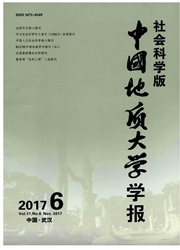

 中文摘要:
中文摘要:
人口老龄化是新常态的基础性因素。论文分析了人口老龄化影响住房需求和房价变动的机理,建立了一个包含人口老龄化的房价模型,采用系统广义矩估计方法,基于1999—2015年的省际面板数据,对人口老龄化的房价变动效应进行了实证研究。结论表明:房价上涨具有一定的惯性,惯性预期可以解释房价上涨的77%;人口老龄化推高了中国房价,但老年人口占比与房价一阶滞后项的交叉项对房价的影响为负,人口老龄化预期有抑制房价上涨的作用;城镇居民收入上升对房价上涨有一定解释力,但东部弱于中西部地区;房地产开发商土地购置面积与房价存在负向滞后效应。由此引申的政策含义是:管控预期是重中之重,人口老龄化和管控住房预期要紧密结合,分类设计和实施住房调控政策,优先满足住的需求,同时增加土地供给,保证住房供应。
 英文摘要:
英文摘要:
Population aging is a fundamental factor in the era of new normal of China. The influential mechanism of aging on housing demand and price has been analyzed. Housing price model with popula- tion aging has been made in this paper. Based on dynamic panel data (1999--2015) of 30 provinces in China, the impacts of aging on housing price has been studied empirically by using system generalized method of moments (SYS GMM). We found that the rise of housing prices has certain inertia, and 77 percent of housing price rise can be attributed to the inertial expection. The housing price rise has been driven by increasing population aging. However, the cross-item of aged population and lagged variable of housing price has negative influence on housing price; the aging expectation is an antidote to the rapid inflation of housing prices. The rise of urban housing price can be explained by the disposabe income per capita to some degree. The results from the eastern region is less significant than the central and west- ern regions. There is a negative lagged-effect of land area on housing price. Therefore, the policy impli- cations are as follows: managing expectation is the first priority; population aging and expectations of housing prices should be integrated tightly; designing and the adjustmental policies should be enforced based on the consumptive or asset attributes of houses with the priority of residental demand; land sup- ply should be increased for housing supply.
 同期刊论文项目
同期刊论文项目
 同项目期刊论文
同项目期刊论文
 期刊信息
期刊信息
